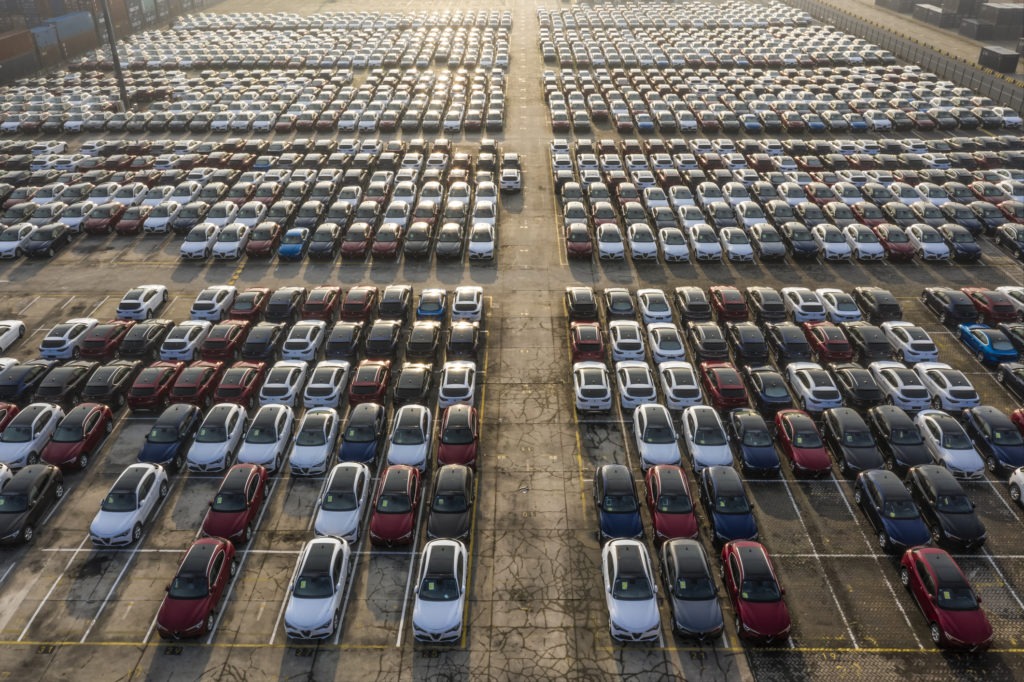Lowest November for EU new-car registrations since 1993
17 December 2021

Only 713,346 new cars were registered in the EU last month, according to figures released by the European Automobile Manufacturers’ Association (ACEA). The industry body notes that ‘this result marked the lowest November total on record since 1993’.
As COVID-19 severely disrupted the automotive market in the EU last year, this article contrasts the latest new-car registrations data with 2019 figures to offer a more meaningful comparison.
Compared to November 2019, the new-car market contracted by 30.1%, with the volume more than 300,000 units lower. Despite the severity of the downturn, the November result suggests a modest improvement on the 35.7% decline in October. However, there was an additional working day in most EU member states last month and Autovista24 estimates that, on an adjusted basis, the contraction was about 33%. Conversely, there were between one and three fewer working days in October than in 2019, giving an adjusted 29% downturn.
Most EU markets suffered double-digit declines in November, with the big four countries seeing an average contraction of 30.7%. The exceptions were Greece, with a 4% decline, and Ireland, where registrations volumes increased by an exceptional 47%. Incentives for plug-in hybrids (PHEVs) will be ending there from the beginning of next year, although €100 million has been pledged to support its electromobility incentives for 2022.
Outside of the EU, both Iceland and Norway enjoyed phenomenal growth of over 50% compared to November 2019. However, 10 EU member states registered more than 30% fewer cars last month than two years ago, including Belgium, Germany, the Netherlands, Portugal and Sweden.
Ominous Omicron
The EU new-car market contracted by 25.6% in the first 11 months of 2021, a slight deterioration on the cumulative fall of 25.1% through October. Moreover, at just over 8.9 million units, this has even turned the cumulative year-on-year comparison against 2020 negative. All EU markets have endured double-digit declines thus far in 2021, although registrations in non-EU Iceland and Norway are 3.4% and 18.7% higher, respectively, than in the same period in 2019.
The fortunes of the EU market will improve once sales orders can be more quickly translated into registrations. However, the ongoing shortage of semiconductors continues to disrupt production and supply, while a surge of COVID-19 cases across the region, especially of the ominous Omicron variant, has seen restrictions extended in numerous countries, denting consumer confidence. Furthermore, rising energy costs and persistent inflationary pressure is squeezing household budgets and reducing underlying demand for new cars.
In this gloomer environment, a market improvement is not expected in December and Autovista24 anticipates about 750,000 EU new-car registrations in the month. Accordingly, a total of 9.65 million units is forecast for 2021, equating to a contraction of 25.9%, or 3.4 million units, compared to 2019.
This represents a year-on-year contraction of 2.9% in 2021. Autovista24 downgraded its forecasts for France, Spain, and Italy earlier this month, but Germany is expected to suffer the severest contraction among the major markets, at 10.8%.
With the semiconductor shortages expected to persist into 2022, and possibly even 2023, this will continue to dampen any recovery in the coming months. As it stands, Autovista24 forecasts that the EU new-car market will grow by 9% in 2022 and about 10% in 2023. However, the risks are certainly on the downside, especially given the uncertainty about the impact of Omicron on consumers, the wider economy and, ultimately, new-car demand.
Autovista24 will continue to monitor and report on key developments and revise market forecasts accordingly.



